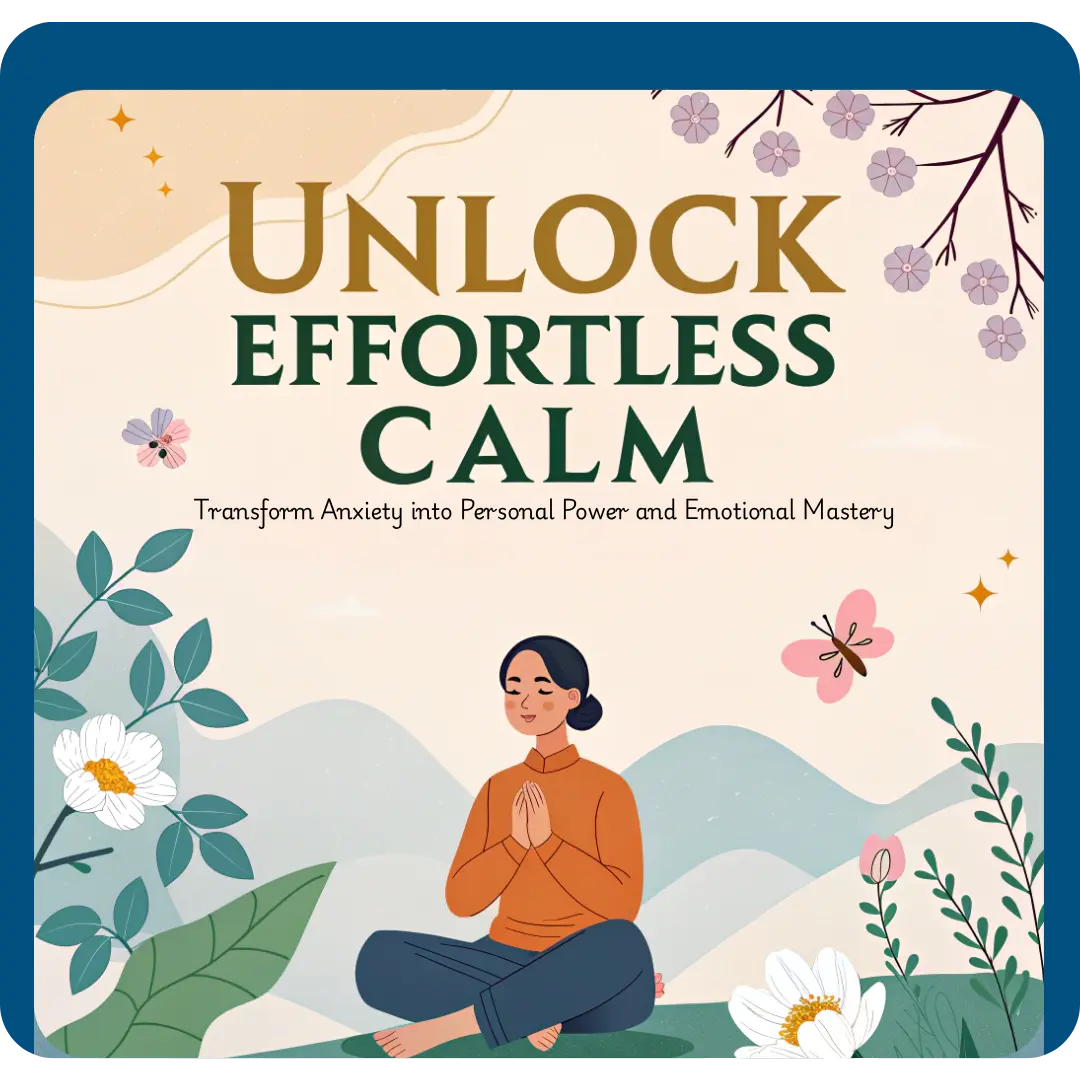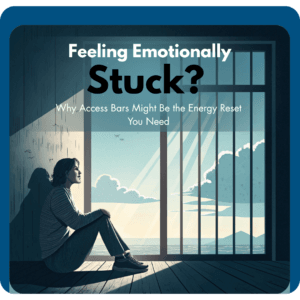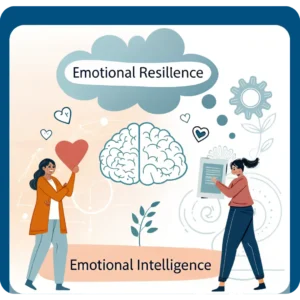Unlock Effortless Calm: Transform Anxiety into Personal Power and Emotional Mastery
Table of Contents
Take a deep breath. Inhale slowly… and exhale completely. Now, imagine a life where you are no longer controlled by anxiety—where instead of feeling overwhelmed, you feel clear, calm, and in control. Picture yourself walking into any situation with quiet confidence and a sense of mastery over your emotions. How different would life feel?
If you’ve been struggling with anxiety, I want you to know: anxiety isn’t your enemy. It’s a messenger trying to tell you something important. Most of us just haven’t learned how to understand it. In this post, we’ll explore the hidden messages behind anxiety, the costs of avoiding it, and practical tools that can help you not just manage, but master your anxiety—allowing you to lead your life with ease and confidence.
I’m Sonali Mittra, and over the years I’ve had the privilege of helping women worldwide break free from anxiety, overwhelm, and uncertainty. This is about more than just coping—it’s about unlocking the leader within you. Let’s dive in.
What is anxiety trying to tell you?
Anxiety shows up in many ways. It can feel like a knot in your stomach, a weight on your chest, or a whirlwind of racing thoughts that won’t let you rest. Sometimes, it sneaks in quietly, unnoticed, making you feel like you’re just “off” for no reason. Other times, it can be intense and overwhelming.
But what if your anxiety isn’t just there to torment you? What if it’s pointing out areas of your life where you are out of alignment with your true self? What if it’s nudging you towards change?
Types of Anxiety
1. Static Anxiety:
This type of anxiety lingers quietly in the background. It can feel like subtle tension that never fully goes away, leaving you chronically tired, stiff, and in survival mode. You might not even notice it because it becomes your “normal.”
2. Dynamic Anxiety:
Dynamic anxiety is more situational and intense. It arrives suddenly, often in response to a specific trigger, with noticeable symptoms like rapid breathing, sweating, or tightness in your chest.
Both forms can affect your ability to focus, cloud your decision-making, and hold you back from moving forward. But if you listen closely, anxiety often points to areas where you are either avoiding something, defending something, or trying to prove something.
Are You Avoiding, Defending, or Proving Something?
•What are you avoiding with anxiety?
Anxiety might be helping you avoid uncomfortable emotions, like the fear of failure or rejection. Perhaps it’s holding you back from setting boundaries or addressing old wounds. Many people feel anxiety when they’re on the verge of stepping into something bigger—like a leadership role or a new path aligned with their authentic self. Your mind may be asking, “Are you sure you’re ready for this?”
•What are you defending with anxiety?
Anxiety can show up as a defense mechanism, shielding you from vulnerability. You might feel the need to protect yourself from judgment, criticism, or the fear of not being good enough.
•What are you proving with anxiety?
Sometimes, anxiety is rooted in the desire to prove something—whether it’s trying to meet expectations or striving for perfection. Are you stuck in a cycle of “I have to prove my worth” or “I can’t fail”?
The Hidden Cost of Avoiding Anxiety
When we avoid facing our anxiety, the costs add up. Opportunities slip by. Relationships suffer. Personal goals feel out of reach. You may procrastinate, self-sabotage, or struggle to even take small steps forward. Anxiety drains your energy, leaving you stuck in survival mode instead of living with intention.
If left unchecked, anxiety can prevent you from becoming the leader of your own life. Imagine continuing to live like this for the next year or even five years. How much time and potential would be lost? On the other hand, what could your life look like if you chose today to step into your power?
Tools for Effortless Calm and Emotional Mastery
Let’s shift the conversation from fear to empowerment. Anxiety doesn’t have to control your life. Below are tools and techniques that can help you reduce anxiety and step into effortless calm. These tools have transformed the lives of countless women I’ve worked with—and they can do the same for you.
1. Your Choices Create Your Reality
Anxiety often arises from old decisions or beliefs—such as “I’m not good enough” or “I have to do everything perfectly.” The good news? If you created these beliefs, you can uncreate them. Start by identifying what choices or conclusions are feeding your anxiety.
2. Clear Negative Energy
Anxiety can also come from absorbing negativity from your surroundings—whether it’s from people, media, or situations. Learning how to energetically clear your space can have a profound effect. Ask yourself: Whose anxiety am I carrying? Does this even belong to me?
3. Heal Your Inner Child
Many of our deep-rooted fears come from unresolved childhood experiences. Inner child healing can free you from old wounds, allowing you to release the fears that are no longer serving you.
4. Reframe Anxiety as Excitement
Did you know that anxiety and excitement trigger similar physiological responses? The next time you feel anxious, try asking: Is this fear, or could it be excitement? Shifting your perspective can make a huge difference.
5. Connect with Your Body
When anxiety hits, your body is trying to communicate with you. Deep, conscious breathing can calm your nervous system and create a sense of communion with your body. What if you could include your body in every decision you make?
6. Adopt a Leadership Mindset
Leading your own life means making choices that align with your true self. It’s about shifting into a mindset of no-failure—understanding that every experience is a step towards growth.
7. Set Clear Goals and Commit to Them
Feeling directionless can fuel anxiety. Clear, actionable goals provide a sense of purpose and grounding. Start by setting small, achievable goals and committing to them fully.
The Healing Pathway: Your Next Step Towards Calm and Clarity
If this resonates with you, I invite you to take the next step by joining my free course, The Healing Pathway. This course is designed to help you move beyond anxiety, gain clarity, and step into your authentic power.
In this course, you’ll learn:
•How to Make Effective Choices: Align your goals with your inner desires.
•How to Stay Committed: Tools to help you stay on track, even when challenges arise.
•Laws of Consciousness: Work with universal principles to support your growth.
•Clearing Negativity: Practical techniques to keep your mind and environment clear.
•Healing Past Wounds: Methods to resolve inner conflicts and release emotional baggage.
•Connecting with Your Authentic Self: Discover how to lead your life with joy and confidence.
Final Thoughts: Anxiety is Just a Messenger—What Will You Do With Its Message?
Your anxiety doesn’t define you. It’s simply trying to tell you something. The question is: Will you listen? Are you ready to move forward with confidence, clarity, and calm?
The tools are here for you. You don’t have to do this alone. Join me on The Healing Pathway and begin your journey towards effortless calm and leadership mastery today.
Ready to Take the First Step?
Write to us to know more about The Healing Pathway for free and start transforming your life.
By reframing anxiety as a messenger and adopting actionable tools, you can move beyond overwhelm and step into your true power. This journey isn’t just about managing anxiety—it’s about mastering it and becoming the leader of your own life. You’ve got this.
—
Sonali Mittra, Founder & Director, Treta Foundation, an emotional wellbeing platform.
FAQs
Static anxiety is low-level tension that never fully goes away. Dynamic anxiety comes in bursts, triggered by certain events.
Yes. Anxiety often points to what you might be avoiding, defending, or trying to prove—things inside that need attention.
Try seeing anxiety as excitement or a signal. Identify what it wants to tell you and use it to move forward instead of freeze.
Deep conscious breathing works well. Also consider reframing thoughts, inner child healing, or clearing negative energy.
Set clear goals, commit to them, connect with your body, and adopt a leadership mindset—even small steps help.
Yes. Perfectionism or the need to prove yourself adds to anxiety. Let go of rigid beliefs and choose alignment over proving.
You can energetically clear your environment, set boundaries, and check which anxiety isn’t even yours (absorbed from others).
It depends. Many see shifts after using even one or two tools. More deep work (inner child healing, mindset shifts) give longer lasting change.
Because anxiety often lives in unhealed parts of self or beliefs from past. It doesn’t always match current external reality.
Daily habits: breathwork, small goal setting, noticing body tension, self-compassion, keeping alignment in your choices.





This article beautifully explains how we can transform anxiety into a source of strength rather than letting it control us. I really resonated with the idea of reframing anxiety as a messenger—such a powerful shift in perspective! The practical tools shared here feel so actionable, and I can’t wait to start implementing them in my own journey toward emotional mastery.
I’ve read many self‑help posts, but Transform Anxiety into Calm Personal Power stands out for its compassionate tone and real‑world tools. The section on healing the inner child was especially insightful—thank you for sharing!
This post came at the perfect time for me. The idea that anxiety points to something deeper really resonates. I’m starting to shift how I think and feel — actively choosing to transform anxiety into calm personal power. Truly inspiring
Your article helped me a lot, is there any more related content? Thanks!